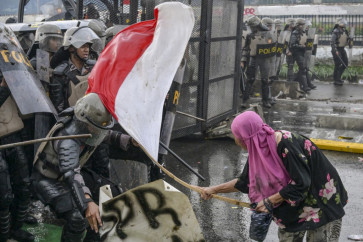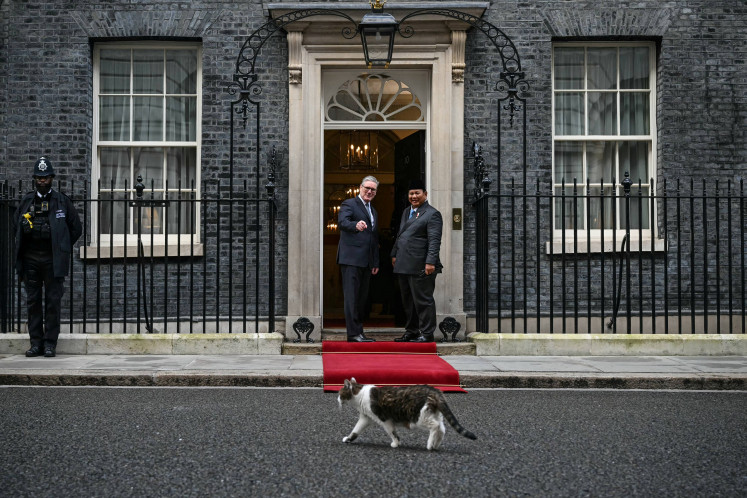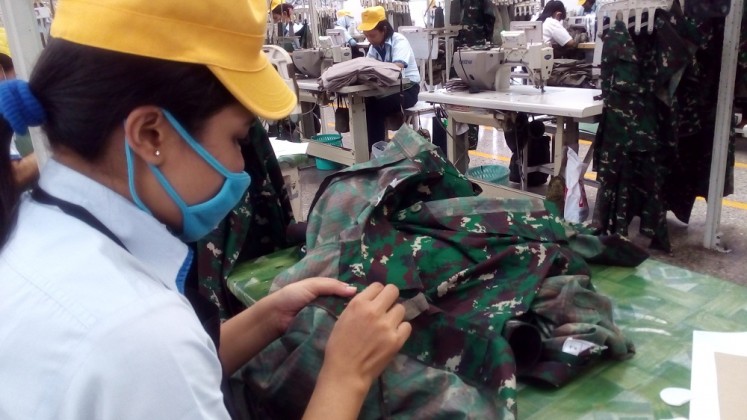Popular Reads
Top Results
Can't find what you're looking for?
View all search resultsPopular Reads
Top Results
Can't find what you're looking for?
View all search resultsIslam from a Western perspective (Part 2 of 2)
In 2004, the Dutch filmmaker Theo van Gogh was murdered
Change text size
Gift Premium Articles
to Anyone
I
n 2004, the Dutch filmmaker Theo van Gogh was murdered. The extremist Muslim perpetrator left a written message stating that he had committed the murder because Van Gogh had openly criticized Islam. This brought about a change in the Netherlands: politicians and other participants in the public debate were threatened and there were even sporadic incidents in which mosques, churches and schools were attacked.
These events have raised the question as to which extent Islam, in its present forms, is compatible with the democratic core-values and practices in the Netherlands. Combined with concerns about integration, such as the continued low levels of mastery of the Dutch language, low rates of inter-ethnic marriage (more than 70 percent of the Turkish and Moroccan youth marry a partner from their country of origin), high numbers of school drop-outs and relatively poor school results among the Muslim population, these issues have led to heated societal and parliamentary discussions.
Although the Dutch government and civil society organizations are making serious efforts to implement integration policy, one point remains problematic: the split which threatens to develop between Muslims and non-Muslims. This threat is fuelled by some Muslim fundamentalists who take advantage of dissatisfaction among second and third generation immigrants with the slow progress of integration.
These Muslim fundamentalists do not want to be part of the society in its present form, but place themselves outside of it and even reject the Dutch standards concerning democracy and rule of law. Fortunately, however, this group is just marginal and most Dutch Moroccans (or Moroccan Dutch) and people from other ethnic groups in fact do accept Dutch shared values. But, as is well known, individuals and marginal groups can cause a lot of harm.
Finally, there are political parties in Europe which play upon the theme of Islam and violence. Actually their position may have little to do with Islam as such, but much more with existing feelings of discontent towards immigrants from Muslim countries and the disliked or deviant behavior of some of them.
Usually, discussions about Islam deal mainly with some outward or visible phenomena or symbols. Only rarely is there a discussion about religious principles themselves.
Discussions deal with, for instance, women wearing the veil in public life. It being used in Europe is met with opposition, because it is often being seen there as a symbol of non-integration, also limiting the freedom of women.
Other topics of Islam which attract particular attention and usually have a negative connotation in the West are: the carrying out of Sharia regulations such as beheading, cutting off hands, stoning to death or caning; polygamy (men allowed to marry up to four women); marrying girls at a very young age; violent jihad; the issue of having 60 or more virgins in Paradise after men have been "martyred" during a jihad operation; and other phenomena which are not necessarily Islamic, but are nevertheless often being portrayed as such, such as female circumcision (which also is very common in non-Islamic parts of Africa), honor killings, condoning violence against women at home (which occurs even stronger in non-Muslim parts elsewhere in the world like South America)
When such practices are being propagated or carried out in certain parts of the Islamic world, even if they are exceptional, they may in Western public opinion also have a negative side effect on the perception of those parts of the Islamic world where such practices are not followed, or where they are even rejected.
For instance, the Acehnese sha-ria bylaw which makes it possible for adulterers there to be stoned to death (rajam) may negatively affect the positive image existing abroad of Indonesia as a moderate country, even if all other Indonesian provinces would reject this practice.
It should be stressed that what may have been considered normal or acceptable in the past is no longer necessarily acceptable by 21st century standards; it is often no longer acceptable to a majority of Muslims, some of whom may take issue with these outdated attitudes. But this is not always clearly seen as such in the West.
It would therefore be very useful if the more moderate Muslims would let their voices and views resonate much clearer and louder, so that they may compete with those radical voices that are currently distorting the image of Islam and so that they may help correct this distorted image of Islam which presently prevails among some people in the West and in some parts of the world. It would be equally useful if people in the West would listen attentively, not dismissively, to these voices.










